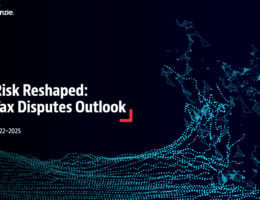We are delighted to invite you to our Baker McKenzie Middle East Customs and Transfer Pricing Briefing.
Hosted at our Dubai International Financial Centre (DIFC) office on 12 October 2023 at 8:30 – 11:30 am GST, the session is designed to provide you with first-hand insights from our Middle East and international experts in the fields of Customs, Transfer Pricing and VAT.
Hot on the heels of the German Federal Fiscal Court’s publication of its final decision in the Hamamatsu case, UK Customs (HMRC) have today published updated guidance on the customs valuation of imports, replacing its previous guidance (Notice 252).
What jumps out at first glance is a seeming change in policy with regards to the valuation of goods sold between related parties, with HMRC advising “you will not usually be able to use Method 1 [Transaction Value] with a margin-based transfer pricing model.”
In the midst of regulatory developments, increased enforcement and greater coordination amongst customs and transfer pricing regulators, businesses need to stay abreast of the latest considerations with respect to the interaction between transfer pricing and customs valuation within their supply chain.
In the session on 23 June, senior tax and transfer pricing professionals will share their observations on the latest customs and transfer pricing developments in the EMEA region and provide practical guidance on how to mitigate risks on these issues.
Stay tuned to Baker McKenzie’s Supply Chains Disrupted video series for discussions and practical insights about current and emerging supply chain issues, with a focus on the tax, legal, trade and regulatory implications supply chain management teams should consider.
Rapid business transformation across the globe and shifting international policy are driving significant changes to organizations’ tax exposure, financial resilience, strategy and management. These factors are shaping how companies across every sector approach the future of tax dispute resolution.
Our latest report draws on an independent survey of 1,200 tax leaders in 10 jurisdictions and across six sectors conducted in late 2021 and insights from our tax disputes and international tax teams.
Our first episode provides an overview of the series and focuses on the latest triggers for disruption, and the importance of a multidisciplinary approach to supply chain management.
Global supply chains across all industry sectors are facing an unprecedented challenge due to the COVID-19 pandemic. Increased pressure on supply chain linkages is nothing new to multinational enterprises (MNEs), due to national tax and trade protectionism measures, evolving international tax policies, and technological disruption, but the current global pandemic…






